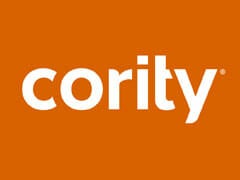The FDA published CFR Part 11, sometimes referred to as Title 21 CFR Part 11, in 1997, specifies the standards that must be met before electronic records and electronic signatures can be compared favorably to paper records and handwritten signatures. All industries subject to FDA oversight, such as those in the pharmaceutical, biotechnology, medical device, and food sectors, must abide by the rule.
In this blog post, we will discuss:
- The importance of 21 CFR Part 11 quality compliance
- What are the requirements from an organization who wishes to be 21 CFR Part 11 compliant
- How Cority can support organizations in meeting the requirements of this regulation
What are the Goals of 21 CFR Part 11 Compliance?
Quality compliance with 21 CFR Part 11 aims to ensure that all companies in the FDA regulated sector are taking the necessary precautions to secure their data. Creating robust security protocols includes implementing measures like multi-factor authentication, encryption, access control lists, password management systems, and monitoring procedures. These rules assist in lowering the possibility that unauthorized individuals would access sensitive data or alter digital records. It also ensures the accuracy of digital records throughout time.
What is the importance of 21 CFR Part 11?
21 CFR Part 11 compliance is essential for any organization that operates in an FDA-regulated industry. Compliance with the regulation ensures data integrity, confidentiality, and reliability, which are critical for the safety and effectiveness of the products in these industries.
In addition to ensuring data integrity and reliability, 21 CFR Part 11 compliance can also help organizations streamline their processes and reduce costs associated with paper-based documentation. Electronic systems can improve data quality, reduce the risk of errors and omissions, and facilitate timely access to critical information.
What are the organizational requirements in order to be 21 CFR Part 11 compliant?
Here are some key requirements that a FDA regulated organization must achieve to comply with 21 CFR Part 11:
1. System Validation
The organization must ensure that their electronic systems and processes are validated in order to meet the requirements of 21 CFR Part 11. This includes a thorough review of the system design, development, and testing processes to ensure quality compliance with the regulatory requirements.
2. Audit Trails
The organization should make sure that their electronic systems and processes can create and maintain audit trails that record all user actions involving electronic records and signatures. Any changes or additions to the record, as well as the identity of the person making the changes, should be recorded in the audit trail. The audit trail should be designed to prevent tampering or deletion and it should be easily retrievable and available for review by authorized personnel throughout the records’ retention period.
3. Electronic Signatures
The customer is responsible for making sure their systems and procedures can manage and create electronic signatures that are connected to electronic records. The electronic signatures must be unique to the individual signing and must be linked to their identity, be secure, and be connected to the electronic record in a way that protects the confidentiality and integrity of the data.
4. Security Controls
The customer must ensure that their electronic systems and processes have adequate security controls to protect against unauthorized access, modification, or destruction of electronic records and signatures. This may include access controls, such as user IDs and passwords, as well as physical controls, such as locked doors or restricted access areas.
5. Record Retention, Data Backup and Recovery
Electronic records must be kept by the organization in a way that protects their authenticity, dependability, and integrity. Records must be guarded against unauthorized access, modification, or erasure. The company also must have policies in place for the backup and restoration of electronic documents. To guarantee the availability and integrity of electronic records and signatures, the client must make sure that their electronic systems and processes have sufficient data backup and recovery mechanisms.
6. Training
The organization must provide training to employees on the requirements of 21 CFR Part 11 and on the procedures and controls in place to ensure quality compliance. Training should be provided to all personnel who generate, manage, or review electronic records.
How does Cority help organizations be 21 CFR Part 11 compliant?
1. System Validation
Cority provides support for 21 CFR Part 11 compliance through its professional services team. The services team collaborates with customer implementation teams to ensure that electronic systems meet regulatory requirements. This process includes documenting system configuration, testing and verifying system functionality, and training customer personnel to ensure a smooth transition to the Cority platform. By working closely with customers to validate their systems, Cority ensures that their electronic records and signatures are compliant with 21 CFR Part 11.
2. Audit Trails
Cority’s software platform, CorityOne, provides support for 21 CFR Part 11 compliance through its audit trail feature. The system captures the history and audit trail of all records, including user information, previous values, and chronological order for all fields. The audit trail also captures information about who created, modified, accessed or deleted information. More importantly, the audit trail is not editable and is maintained for the entire life of the record. It is available for viewing, reporting, and printing, making it easy for customers to demonstrate compliance with 21 CFR Part 11. By having robust audit trail capabilities, companies can ensure the integrity and authenticity of electronic records and signatures.
3. Electronic Signatures
CorityOne provides a comprehensive solution for electronic signature requirements for 21 CFR Part 11 compliance. The system allows for electronic signatures and approval workflows, ensuring that signatures are unique and authenticated. The system also enforces the uniqueness of eSignatures, preventing unauthorized use. The configurable system timeout ensures that signatures are only valid for a specified period, preventing the risk of unauthorized access. Additionally, the system provides a detailed workflow history, documenting who, when, and why approvals were performed. Finally, approvals are limited to groups or individuals as determined by business requirements, ensuring that only authorized personnel can provide approvals. By utilizing these robust electronic signature capabilities, companies can ensure compliance with 21 CFR Part 11 and the authenticity and integrity of electronic records and signatures.
4. Document Control
The CorityOne’s policy documentation feature provides users with easy access to controlled documents and policies, including work instructions, SOPs, and more. Published documents are available to a broad audience via myCority, (Cority’s mobile friendly end-user interface) ensuring that authorized personnel have access to the most up-to-date versions of documents. The system’s approval workflow ensures that documents are approved according to their specific document type and are only available once published, promoting consistency and accuracy across the organization.
5. Data Integrity and Security Controls
CorityOne offers robust security controls that are essential for FDA regulated organizations that need to comply with 21 CFR Part 11. The system provides security profiles that can restrict user access to specific records, ensuring that only authorized personnel have access to sensitive information. CorityOne is designed to meet the data privacy requirements of the FDA regulated industry. The system provides granular access controls that can restrict access down to the field level, allowing organizations to control access to specific pieces of data. Access to data is only provided to those who have a legitimate “need to know” use case, helping to ensure the confidentiality and integrity of electronic records and signatures.
6. Training
CorityOne is an excellent tool for FDA regulated companies looking to achieve compliance with 21 CFR Part 11 training requirements. The system’s training management module provides a comprehensive solution for training users. Training curriculum can be customized based on various factors such as location, position, etc. This means that the training can be tailored to meet the unique requirements of each user, making it more effective. The system provides visual dashboards and reports, making it easy to track progress and ensure that all required training is completed on time. Additionally, CorityOne can cross-reference required training to user access, helping to ensure that only trained personnel have access to specific data or functionality. Overall, the training management module is an essential tool for FDA regulated companies looking to achieve 21 CFR Part 11 compliance.
Final Thoughts
In conclusion, FDA regulated organizations must meet several mandatory requirements to pass a 21 CFR Part 11 compliance audit. These requirements are designed to ensure that electronic records and signatures are trustworthy, reliable, and secure. By implementing access controls, maintaining audit trails, ensuring data integrity, using secure electronic signatures, and implementing system validation, consumer goods organizations can ensure that their electronic recordkeeping systems meet the requirements of 21 CFR Part 11 and are able to withstand regulatory scrutiny.

